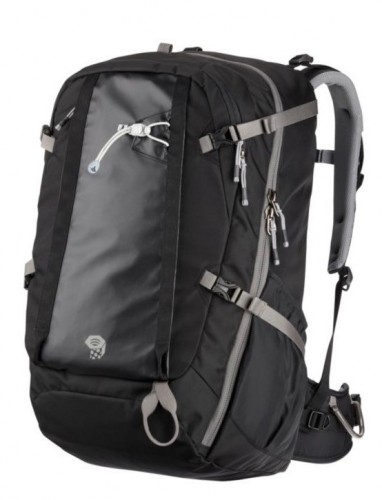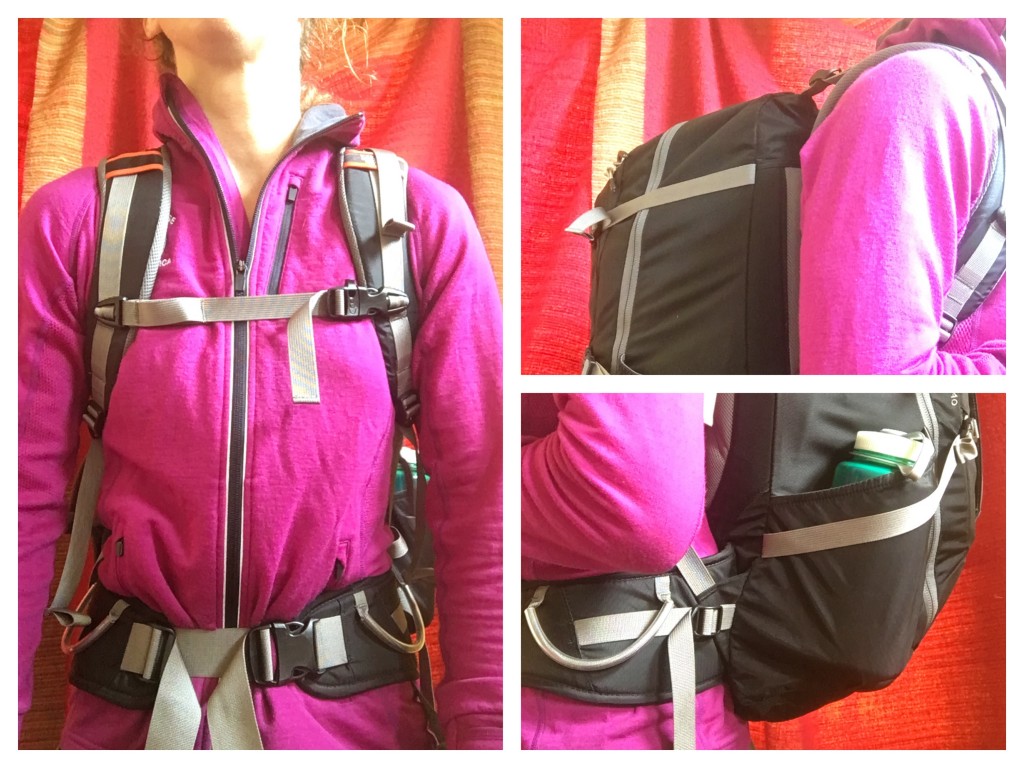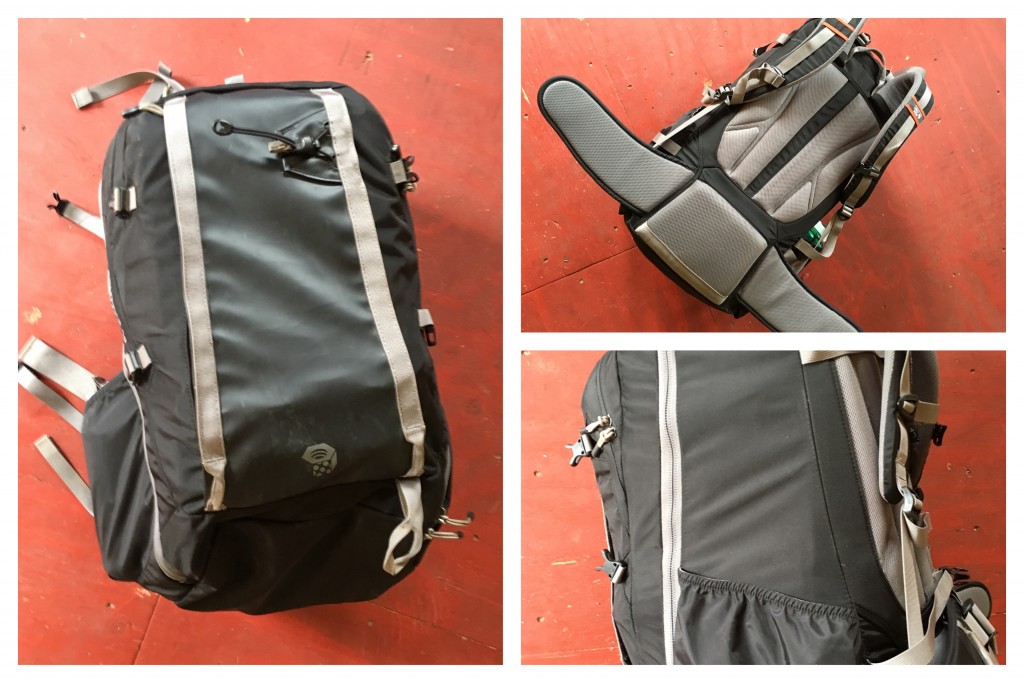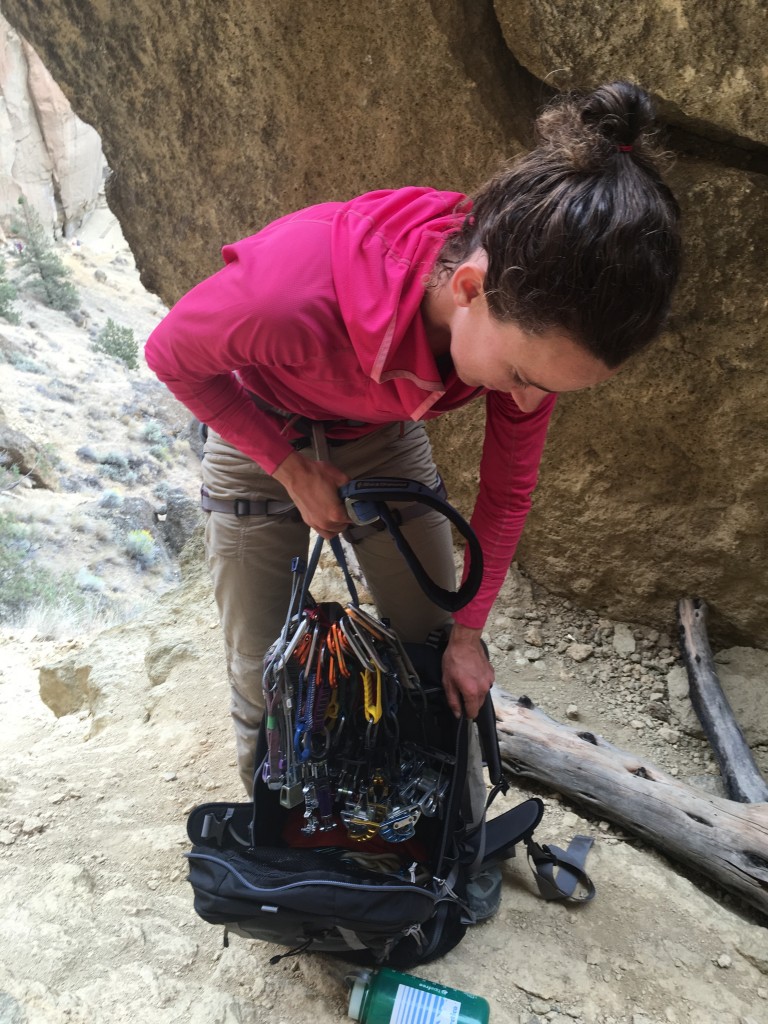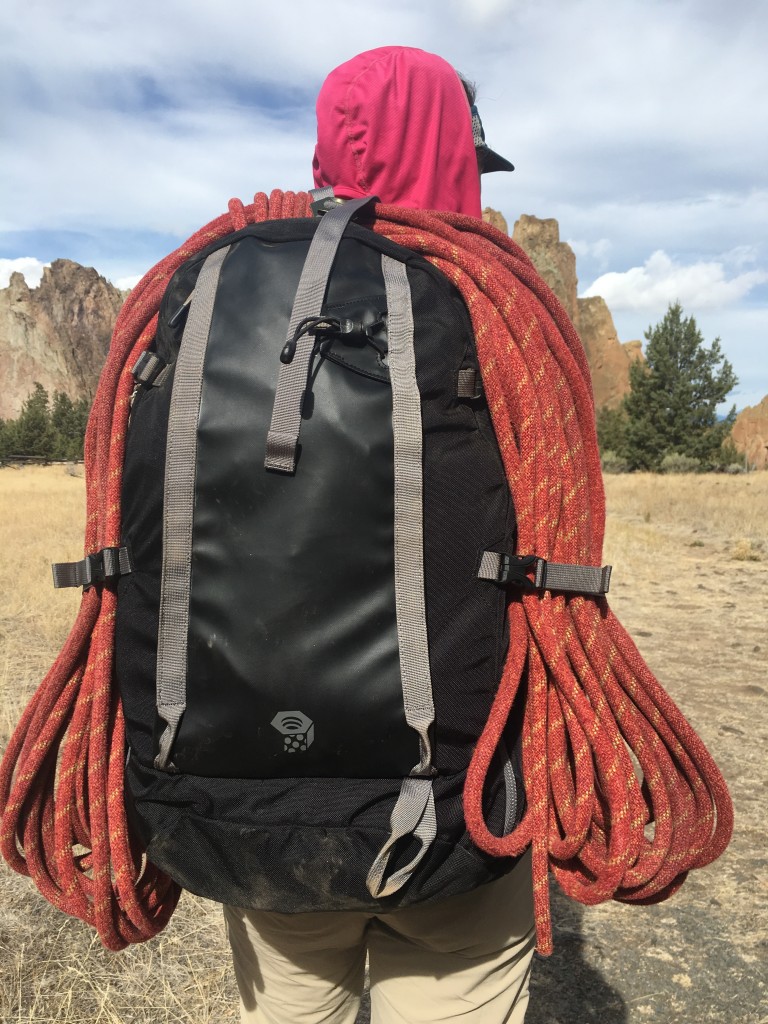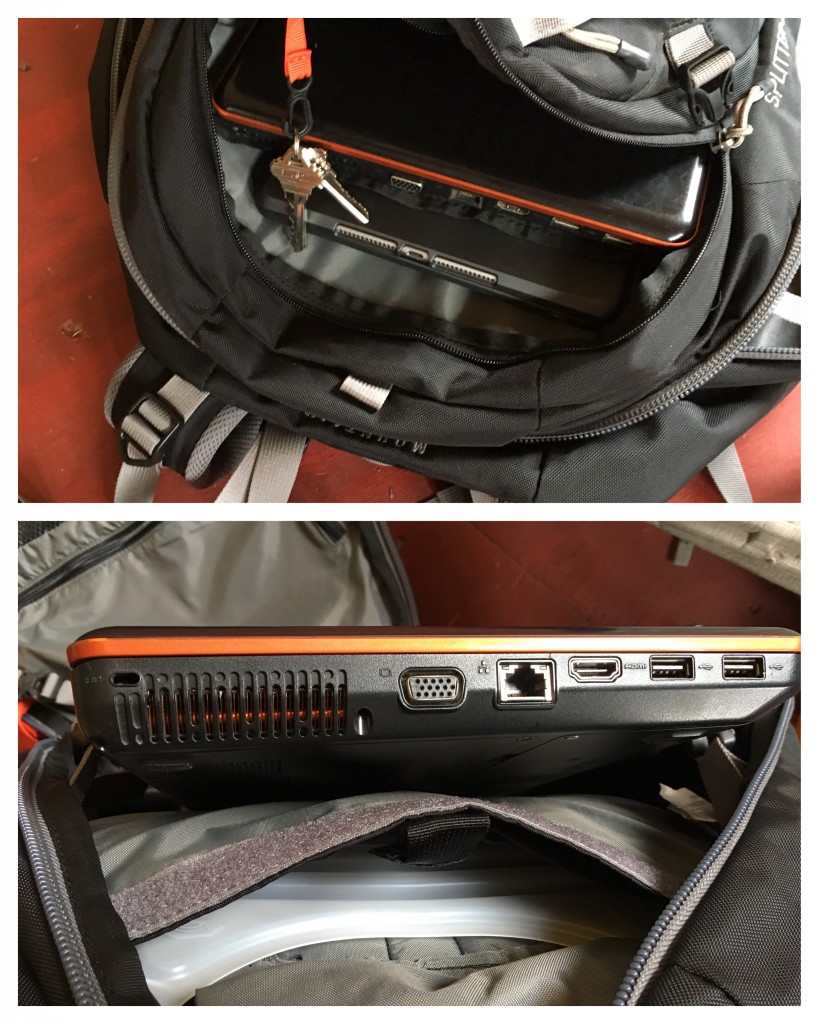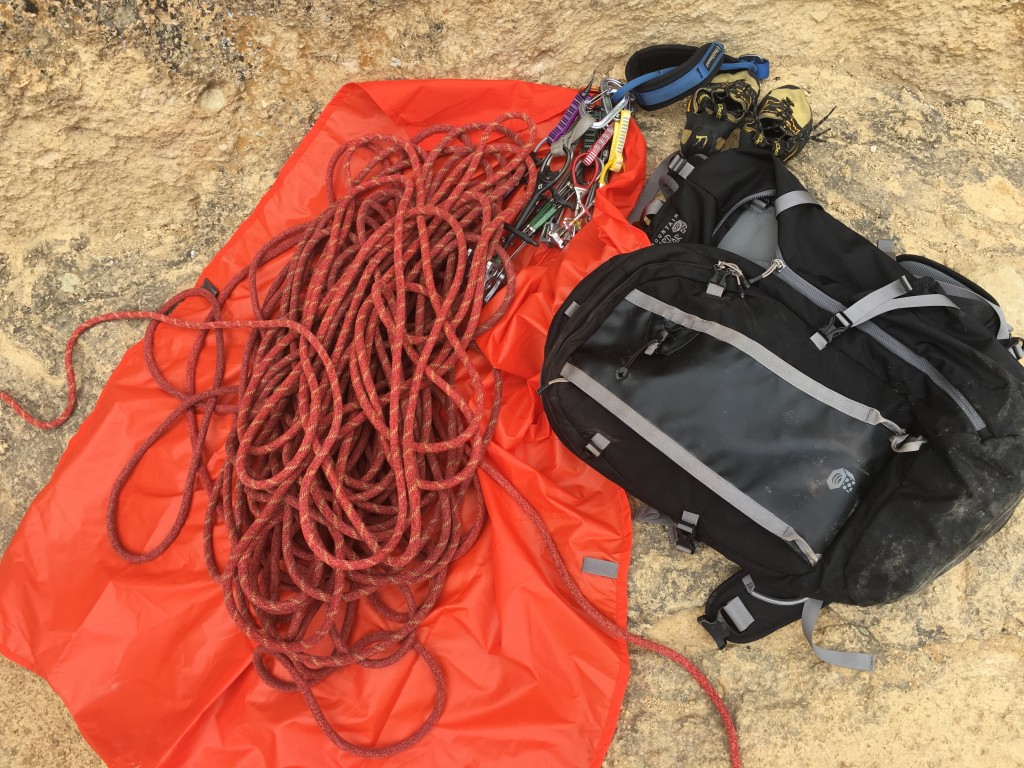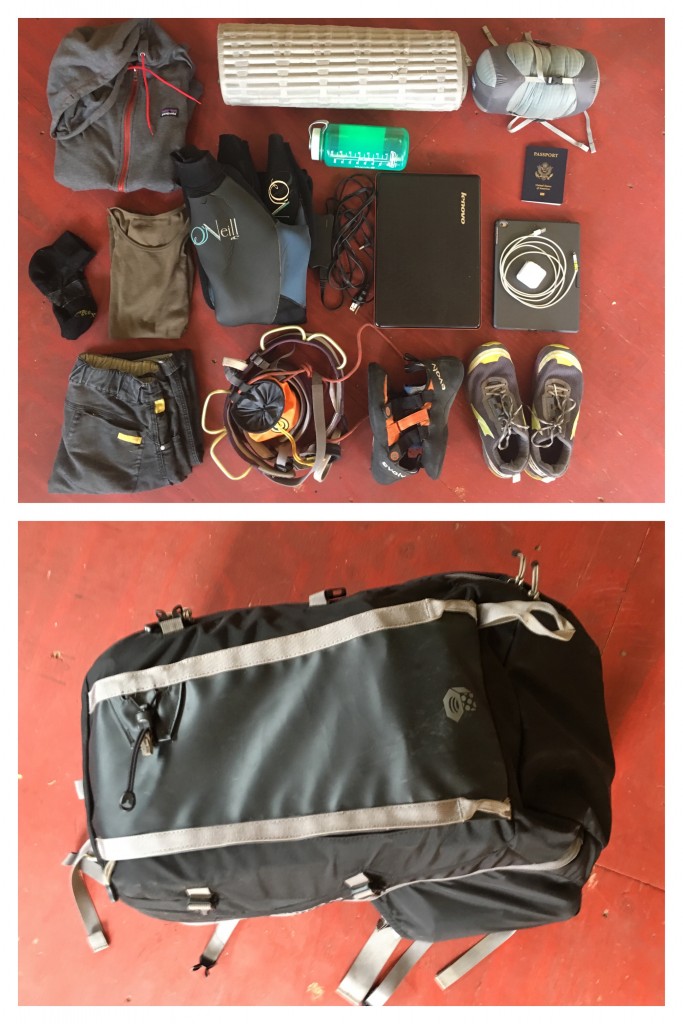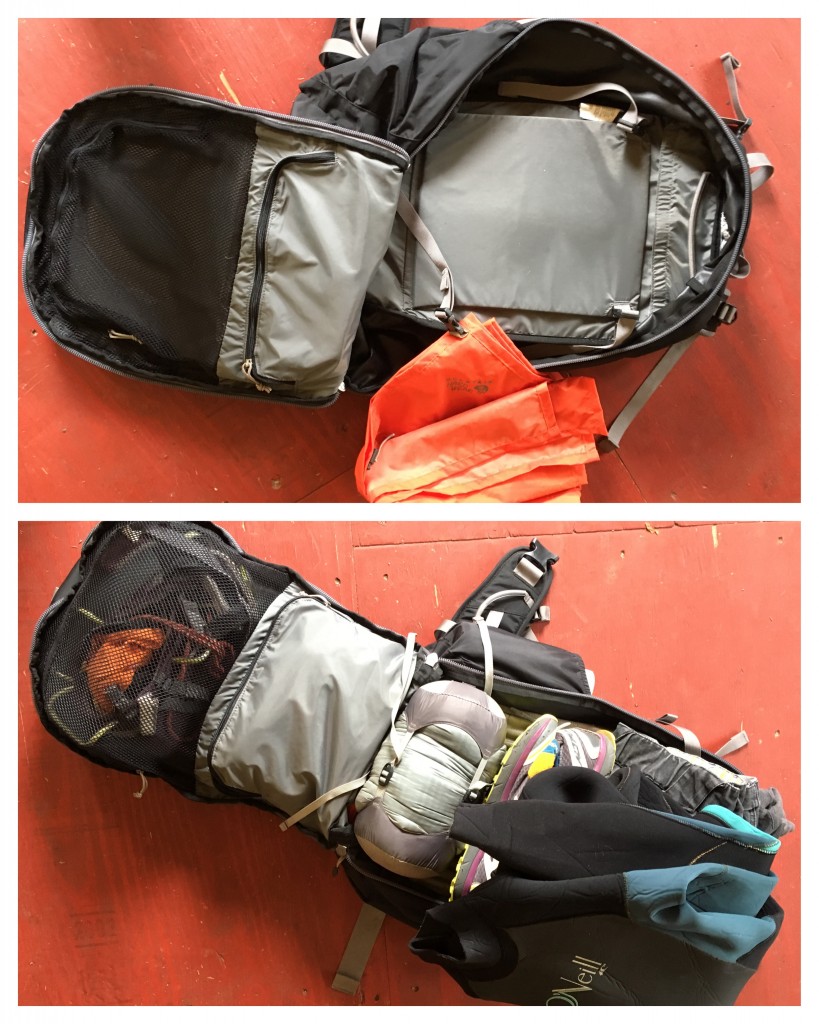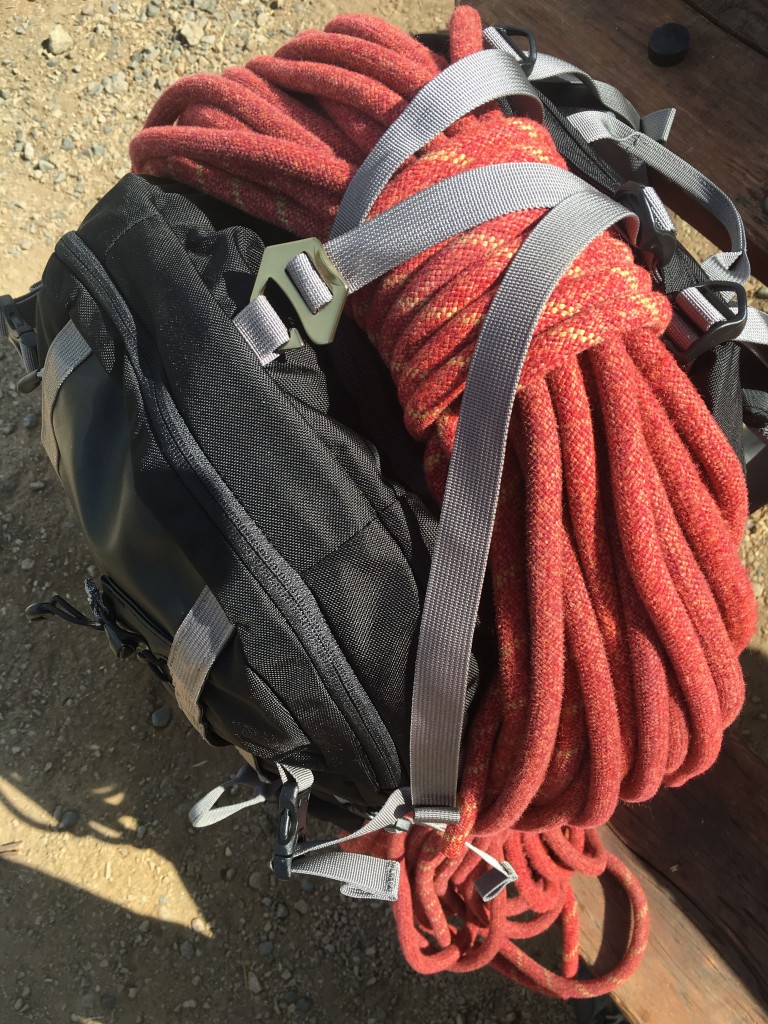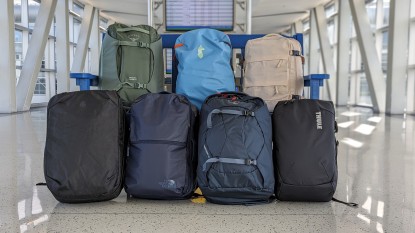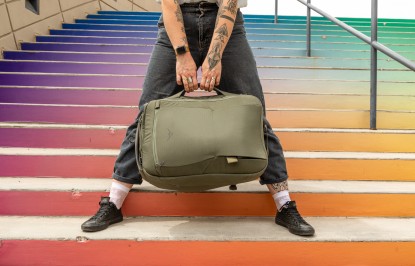Mountain Hardwear Splitter 40 Review
Our Verdict
Our Analysis and Test Results
The Splitter is a strong performer in a specific application: rock climbing or activities involving heavy or burly equipment. It is a very rugged backpack that makes sense for some travel needs.
Performance Comparison
Comfort
The Splitter feels like a big bear hug. It is well padded and comfortable, but it does feel bigger on your back than other similarly sized backpacks. The ample padding does come at a cost to ventilation, and we found that our backs got sweaty carrying this pack on warmer days.
While the pack feels larger on your back than other packs in this review, it is still adjustable enough to fit a wide range of torso lengths, from 16 to 22 inches, though it may take some time to get it fitting just right, especially for taller-torsoed users.
This pack carries best when the load is evenly distributed throughout the pack, and when the volume is filled out. It distributes weight surprisingly well for a panel loading pack. This differs from a top loading pack which is typically packed carefully so that the heaviest items are concentrated close to your lumbar region. It also means you don't have to cram and stuff your gear in any particular fashion: you can put things in the various pockets, keeping well organized, and zip it up and go--and that is when it will carry most comfortably. A sign of appropriately matched design theories!
This pack was most comfortable when loaded with about 25 pounds of gear, which was reasonable for most climbing days (for which this pack was designed). We tested it up to 45 pounds, at which point the frame buckled, the load sank low over our butts, and it pulled back on our shoulders. For its capacity and its outdoor-specificity, it was not our highest scoring backpack for comfort.
The Splitter has lots of organization options, but if you load those up, it puts enough weight in the opening panel on the outside of the pack (outside being the side furthest from your body when the pack is on your back), so the bag ends up feeling heavier than Porter 46 with the same load (this is the principle of keeping items closer to your back to easy carrying, as in packing a backpacking pack, so load isn't pulling out and back, thus torquing your torso and pulling down on your shoulders).
Features
The Splitter is a very compartmentalized pack which allows for excellent organization. Users online report that it is a great work bag for outdoor professionals, as it allows you to keep your tools, rescue equipment, first aid kit, etc. organized so you can access it swiftly.
The hip belt has gear loops, which is a great climbing specific feature. It also has a larger loop inside the pack, protected by a flap of foam, where you can hang your quickdraws or other climbing equipment. There is a loop for an ice axe (not two for ice tools, though you can fit both tools in that single ice axe loop in a pinch). And there is a rope attachment so you can drape your rope over the top of the pack for quick access or for when your pack is loaded up with other climbing gear.
Overall, this is a decent pack: very versatile. It is popular for all season climbing and backcountry trips, though some of our testers found it to be a bit heavy and cumbersome for use as a technical climbing pack. For another great option for outdoor-inclined travelers, check out the Osprey Farpoint 55.
There is a pocket in the front of the backpack which fits a tablet nicely, but is not ideal for a laptop, as it is a little small and not padded.
And last but certainly not least, the bag comes with a removable tarp, excellent for laying out your rope or climbing gear, but also doubles as a small picnic blanket, emergency rain cover (for you or the pack) and many other uses you might think of.
Packing & Accessibility
The Splitter is not technically carry on size, and the shoulder straps and hip belt do not stow, so this is not a pack optimized for frequent airport travel. However, it has less straps than a top loading climbing pack, so it would likely fare better on the airport carousels than a traditional top loading climbing pack.
This pack's side compression straps block the side zippers which means one more step when fully opening the pack for panel loading. This is a minor annoyance, but worth noting.
The Splitter has a very organized inner compartment, where you can zip your shoes into one pocket, lunch in another, hang your gear up in the back, and there is still lots of room for a rope and clothing, etc. This organization system makes this pack an excellent “tool” bag, especially if climbing is your gig.
This pack can also be used similar to a top loading backpack by leaving the side compression straps in place and just unzipping the top. That way you can load and go without organizing by dropping gear in vertically.
This pack is similar to the Osprey Porter 46, but it does not pack as easily, and does not seem to gobble up as much gear (the Porter is 6 liters bigger). The features of the Splitter, however, make it a great travel-to-climb pack, while to Porter is a better travel generalist pack, with a lean towards outdoor activities.
Durability
As a climbing pack, it would seem to go without saying that this is a rugged and durable pack. And it certainly is. It is very well made, boasting some of the burliest fabrics in this review. The only hitch is that the shoulder straps and hip belt don't stow away, so this may not be the most airport-baggage-conveyor-belt-proof bag in this review. This is a rugged pack for the type of travel that doesn't constantly need to board airplanes. If you need a pack that performs well for backpacking or other outdoor pursuits but seals up for the baggage carousel, the Osprey Farpoint 55 is a great option.
Weight & Capacity
This pack is on the heavier end of the packs in this review, and it is in the mid- to low-range for capacity. At 40 liters, it is a bit on the heavy end. However, this is largely due to its very durable construction, burly fabrics, extensive organization scheme, and relatively comfortable suspension. If all of these things are worth a few extra ounces, this is a pack that will keep you stoked on many climbing adventures to come. For a lighter travel backpack and simpler pack overall, try the Patagonia MLC.
Best Applications
The Splitter is a great travel pack for those going on climbing adventures. It does not excel at airport conveyor belt travel, nor is it legal carry on size; but it holds a lot of gear, lets you compartmentalize and organize, and is comfortable on your back. It is not a technical pack you'll want to take on a long alpine route, but it is a great pack for approaches and cragging trips. If you're headed somewhere like Southeast Asia for a climbing trip, this would be a great pack.
Value
This is a relatively expensive backpack at $170, but with all of the features, versatility, and excellent durability, if you're in the market for a long lasting pack that will find many applications in your life, especially if you climb a bit, then you're on the right track with the Splitter.
Conclusion
The Splitter did not score very high in our review due in part to the stiff competition, in part to its lean towards climbing specificity, and the trade offs that ensued. As a travel pack for a climber, however, we believe this would be an excellent pack. It is worthwhile to try this pack on before buying it, to be sure the fit will work for you. It is highly adjustable, so spend some time walking around the store with some sandbags and pillows loaded in it to really get a feel for it. Loaded with your climbing gear and a few travel items, we think you'll like this pack and want to take it on your next international climbing trip, or perhaps your next Rocktober - your fall climbing road trip through the desert southwest.


